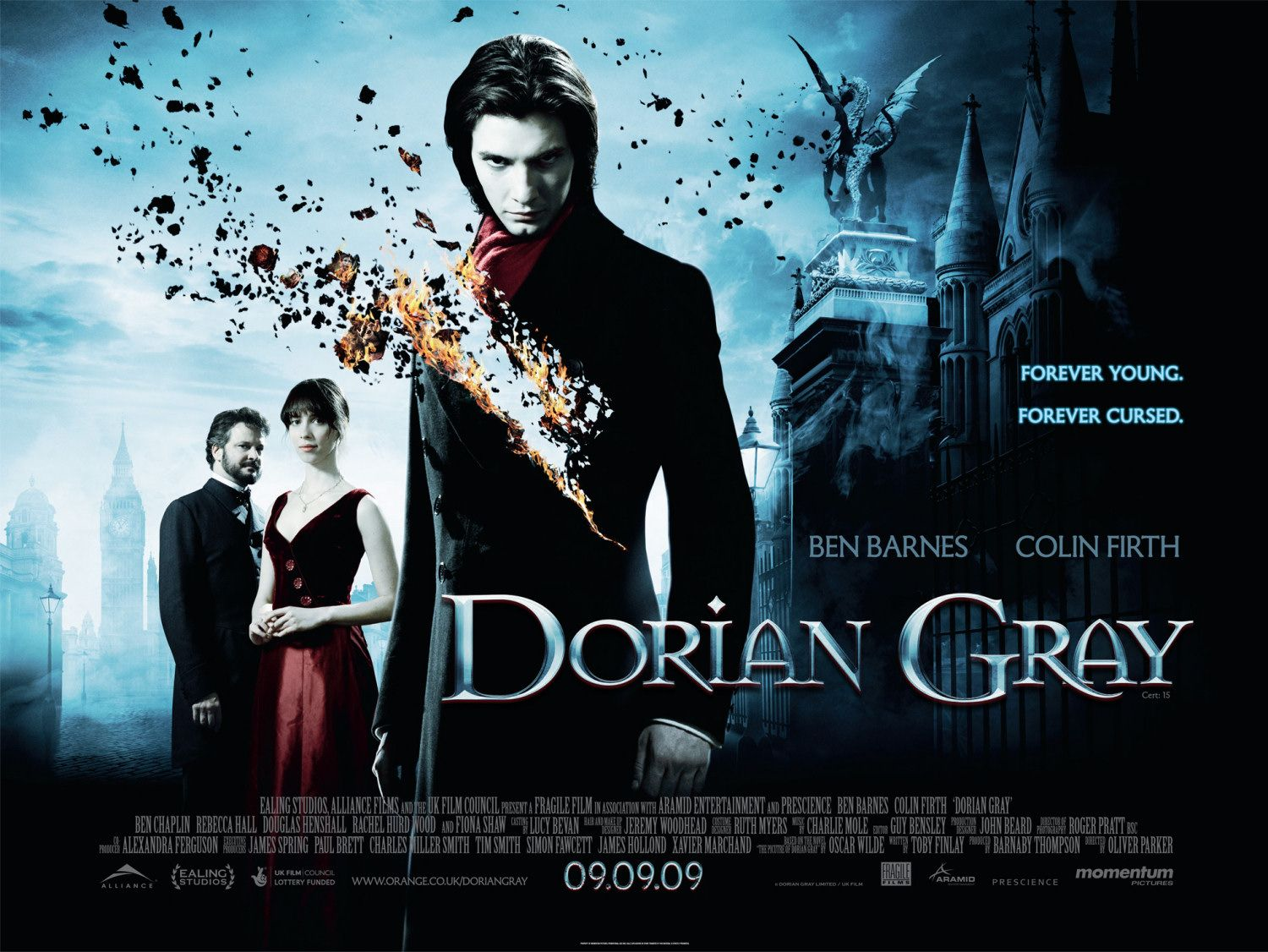Themes in Dorian Gray
Aestheticism and duplicity
Aestheticism is a strong motif and is tied in with the concept of the double life. A major theme is that aestheticism is merely an absurd abstract that only serves to disillusion rather than dignify the concept of beauty. Although Dorian is hedonistic, when Basil accuses him of making Lord Henry's sister's name a "by-word," Dorian replies "Take care, Basil. You go too far" suggesting Dorian still cares about his outward image and standing within society. Wilde highlights Dorian's pleasure of living a double life. Not only does Dorian enjoy this sensation in private, but he also feels "keenly the terrible pleasure of a double life" when attending a society gathering just 24 hours after committing a murder.
This Duplicity and indulgence is most evident in Dorian's visit to the opium dens of London. Wilde conflates the images of the upper class and lower class by having the supposedly upright Dorian visit the impoverished districts of London. Lord Henry asserts that "crime belongs exclusively to the lower orders... I should fancy that crime was to them what art is to us, simply a method of procuring extraordinary sensations", which suggests that Dorian is both the criminal and the aesthete combined in one man. This is perhaps linked to Robert Louis Stevenson's Strange Case of Dr Jekyll and Mr Hyde, which Wilde admired. The division that was witnessed in Dr. Jekyll and Mr. Hyde, although extreme, is evident in Dorian Gray, who attempts to contain the two divergent parts of his personality. This is a recurring theme in many Gothic novels.
Art as a Mirror
This theme is exemplified by the titular portrait. Dorian Gray's image reflects his conscience and his true self, and serves as a mirror of his soul. This fact echoes Wilde's statement that "It is the spectator...that art really mirrors." However, this theme first appears earlier in the preface, with Wilde's contention that "the nineteenth-century dislike of realism is the rage of Caliban seeing his own face in a glass." Realism is a genre of artistic expression that is said to have shown the 19th century its own reflection. The fear that Dorian expresses when viewing the painting, and the emotions that he seeks to escape through sin, drug addiction, and even murder, might be considered an expression of his rage at laying eyes upon his true self. The idea of reflectivity also recalls a major mythical influence on the novel: the story of Narcissus. Dorian, like Narcissus, falls in love with his own image, and is ultimately destroyed by it.
Vanity as Original Sin
Dorian's physical beauty is his most cherished attribute, and vanity is, as a consequence, his most crippling vice. Once a sense of the preciousness of his own beauty has been instilled in him by Lord Henry, all of Dorian's actions, from his wish for undying youth at the beginning of the novel to his desperate attempt to destroy the portrait at the end, are motivated by vanity. Even his attempts at altruism are driven by a desire to improve the appearance of his soul. Throughout the novel, vanity haunts Dorian, seeming to damn his actions before he even commits them; vanity is his original sin. Dorian's fall from grace, then, is the consequence of his decision to embrace vanity - and indeed, all new and pleasurable feelings - as a virtue, at the behest of Lord Henry, his corrupter. In the preface to the novel, Wilde invites us to ponder the inescapability of vanity in our own relationship to art when he states that "it is the spectator, and not life, that art really mirrors.
The Value of Beauty and Youth
Lord Henry claims to value beauty and youth above all else. It is this belief, when imparted to Dorian, that drives the protagonist to make the wish that ultimately damns him. When Dorian realizes that he will keep his youthful appearance regardless of whatever immoral actions he indulges in, he considers himself free of the moral constraints faced by ordinary men. He values his physical appearance more than the state of his soul, which is openly displayed by the ever-increasing degradation of the portrait. This superficial faith in the ultimate value of youth and beauty is therefore the driving mechanism behind the protagonist's damnation. In this way, The Picture of Dorian Gray may be read as a moralistic tale warning against the dangers of valuing one's appearance too highly, and of neglecting one's conscience.
Influence and Corruption
Dorian begins the novel as an innocent youth. Under Lord Henry's influence he becomes corrupt, and eventually begins corrupting other youths himself. One of the major philosophical questions raised by this novel is that of where to locate the responsibility for a person's misdeeds. If one engages in a moralistic reading, The Picture of Dorian Gray can be seen as a lesson in taking responsibility for one's actions. Dorian often points to Lord Henry as the source of his corruption. However, when contemplating the plights of others, Dorian lays the blame at their own feet rather than considering the role that he might have played in their downfall.
Homosexuality
This is the theme that Wilde was alluding to when he wrote of the "note of Doom that like a purple thread runs through the cold cloth of Dorian Gray" in a letter to his young lover, Bosie, following his ruinous court appearances. He calls the theme of homosexuality a "note of doom" because sodomy and homosexuality in general were severly punishable offenses in Victorian England, and it was under such charges that Wilde was brought to trial.



/https%3A%2F%2Fassets.over-blog.com%2Ft%2Fcedistic%2Fcamera.png)